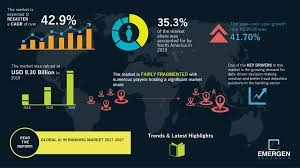Key Transformative Aspects of Agentic AI in Banking

1. Advanced Decision-Making Capabilities
- Agentic AI functions as independent decision-makers rather than just analytical tools
- Can comprehend complex objectives and break them down into manageable components
- Makes decisions without human oversight by accessing tools and systems directly
2. Enhanced Customer Experience
- Real-time evaluation of customer needs beyond scripted responses
- Ability to recognize underlying financial concerns and offer tailored products
- Can create personalized financial planning through coordinated sub-agents
3. Improved Security
- Real-time analysis of vast datasets to detect anomalies
- Preventive fraud detection capabilities
- Multi-layered security approach through specialized sub-agents

Singapore-Specific Applications
1. Regulatory Compliance
- Singapore’s robust regulatory framework (MAS regulations) could benefit from AI agents that continuously monitor compliance
- Intelligent agents could help navigate Singapore’s strict anti-money laundering requirements
- Could assist with adhering to Personal Data Protection Act (PDPA) requirements
2. Financial Hub Advantage
- As Asia’s leading financial hub, Singapore banks could use AI agents to manage complex international transactions
- Facilitate smoother cross-border financial services aligned with Singapore’s position as a global financial center
- Enhance Singapore’s competitive advantage through faster, more efficient banking operations
3. Digital Banking Transformation
- Support Singapore’s digital bank licenses and new virtual banking models
- Complement Singapore’s Smart Nation initiatives
- Enhance the capabilities of existing digital payment systems like PayNow and SGQR
4. Risk Considerations for Singapore
- Potential cybersecurity vulnerabilities in a hyper-connected financial system
- Need for careful implementation given Singapore’s role in regional financial stability
- Requires alignment with Singapore’s AI governance framework and ethics principles
5. Financial Inclusion
- Address underserved segments within Singapore (elderly, low-income groups)
- Support financial literacy initiatives through personalized guidance
- Bridge service gaps between traditional and digital banking preferences

Implementation Approach for Singapore
1. Phased Deployment
- Begin with limited-scope pilots within controlled environments
- Establish robust monitoring frameworks before expanding capabilities
- Coordinate with MAS for regulatory sandboxes to test innovations safely
2. Collaborative Development
- Leverage Singapore’s strong public-private partnership model
- Engage with research institutions like A*STAR and NUS for AI development
- Participate in industry initiatives like API Exchange (APIX) for integration
3. Risk Mitigation Strategy
- Develop comprehensive auditing mechanisms for AI agent decisions
- Implement stringent data protection measures beyond basic compliance
- Create human oversight protocols particularly for high-risk transactions
Singapore’s advanced digital infrastructure, sophisticated regulatory environment, and position as a financial innovation hub make it well-positioned to implement agentic AI in banking, potentially becoming a regional leader in this transformation while addressing the risks through its established governance frameworks.
AI in Singapore Banking: Current Landscape and Future Trends
Current State of AI in Singapore Banking
Singapore is at the forefront of AI adoption in banking in Southeast Asia, with several initiatives already in place:
Key Implementations
- DBS Bank has implemented AI for customer service (through its virtual assistant “Jim”), fraud detection, and credit risk assessment
- OCBC Bank utilizes AI for anti-money laundering monitoring and personalized financial advice
- UOB employs AI for credit underwriting through its TMRW digital bank platform
- Citibank Singapore uses AI-powered chatbots and voice biometrics for authentication.

Regulatory Framework
- The Monetary Authority of Singapore (MAS) has established AI governance frameworks specifically for financial institutions.
- MAS’s “Fairness, Ethics, Accountability and Transparency” (FEAT) principles guide responsible AI implementation
- Singapore’s AI Verify Foundation provides a testing toolkit for responsible AI deployment.
Collaborative Initiatives
- The APIX platform enables fintech-bank collaborations for AI solutions
- Industry sandboxes allow for testing AI banking innovations before full deployment
- Public-private partnerships with research institutions like A*STAR and university research centers

Emerging Trends and Future Direction
Moving Toward Agentic AI
- Beyond current reactive AI systems toward more autonomous decision-making agents
- Development of AI systems that can access multiple banking tools and make coordinated decisions
- Shift from rules-based AI to learning-based systems that evolve with experience.
Potential Applications
- Personalized Banking: AI agents that autonomously manage entire customer relationships
- Corporate Banking: Advanced treasury management systems using predictive analytics
- Wealth Management: Autonomous portfolio adjustments based on real-time market conditions
- Interbank Operations: AI-facilitated settlement systems for enhanced efficiency
Challenges Specific to Singapore
- Data residency concerns given Singapore’s role as a regional financial hub
- Balancing innovation with Singapore’s reputation for stability and security
- Managing transition for banking workforce through upskilling initiatives
- Addressing customer preferences across diverse demographic segments

Strategic Considerations for Implementation
Differentiated Approach
- Leverage Singapore’s advanced data infrastructure for AI advantage
- Build on Singapore’s multilingual capabilities for more inclusive banking AI
- Address Singapore’s aging population through accessible AI interfaces
Risk Management Framework
- Enhanced cybersecurity measures for increasingly connected AI systems
- Regular algorithmic auditing to prevent bias in financial decision-making
- Human-in-the-loop protocols for significant financial transactions
Competitive Positioning
- Opportunity to establish Singapore as the testbed for trustworthy banking AI in Asia
- Potential to export successful AI banking models to regional markets
- Strategic advantage in attracting global financial institutions seeking AI innovation hubs
Singapore’s unique position as a compact, digitally advanced financial center with strong governance creates ideal conditions for becoming a global leader in banking AI implementation, mainly as the technology evolves toward more autonomous agentic systems.
Changing Expectations

In 2018, 76% of senior banking leaders believed AI would be critical for market differentiation.
Early predictions were dramatic, with some suggesting AI could replace half of bank staff.
The actual impact is turning out to be more nuanced and less disruptive than initially feared.

Primary AI Applications in Banking
Customer service improvement
Personalized recommendations based on payment history
Chatbots for handling common customer queries
Seamless handover to human representatives when needed
Optimizing cash flow management
Helping less tech-savvy customers navigate digital banking services

Key Challenges in AI Adoption
Integrating AI with existing legacy banking systems
Accessing and leveraging existing customer data
Avoiding creation of new technological silos
Ensuring smooth, frictionless customer experiences
Innovative Approach Example
The article highlights Auriga’s WinWebServer (WWS) AI module as an innovative solution that:

Seamlessly integrates with legacy systems.
Enables enhanced customer experiences
Speeds up strategic decision-making
Helps optimize cash management across bank branches and ATMs
Subtle but Significant Impact

Rather than replacing human workers, AI is primarily being used to augment and improve banking services, making them more personalized, efficient, and accessible.
The article suggests that AI in banking is less about disruption and more about incremental, strategic improvements to existing banking processes and customer interactions.RetryCanalyse ai as transformation not disruptionEditI’ll provide an analysis of AI as a transformative force in banking, expanding on the themes from the article and drawing insights about how AI is fundamentally reshaping the banking landscape.
AI: A Transformative Force in Banking
Conceptual Shift: From Disruption to Transformation
AI represents a fundamental transformation of banking, not merely a disruptive technology. This transformation is characterized by:
1. Intelligent Personalization
- Beyond traditional customer segmentation
- Real-time, individual-level personalization of financial services
- Predictive understanding of customer needs before they arise
- Customized financial advice and product recommendations tailored to individual financial behaviors and life stages

2. Operational Intelligence
- Reimagining banking processes through cognitive automation
- Moving from rule-based systems to adaptive learning systems
- Continuous optimization of internal operations
- Predictive maintenance of financial infrastructure
- Dynamic risk management and compliance monitoring
3. Customer Experience Reimagined

- Shift from transactional interactions to contextual, anticipatory engagement
- 24/7 intelligent support systems
- Seamless omnichannel experiences
- Proactive financial guidance
- Accessibility-driven design that serves diverse customer capabilities
4. Strategic Decision Making
- AI as a strategic partner in executive decision-making
- Advanced scenario modeling
- Real-time market trend analysis
- Enhanced predictive capabilities for investment and risk strategies
- Democratization of sophisticated financial insights

5. Ethical and Inclusive Innovation
- Using AI to address historical banking inequities
- Creating more transparent and fair financial assessment models
- Developing inclusive financial products
- Reducing human bias in financial decision-making
- Supporting underserved financial populations through intelligent design
Transformation Characteristics

- Evolutionary, Not Revolutionary: Gradual integration that builds upon existing systems
- Augmentative Intelligence: Enhancing human capabilities, not replacing them
- Adaptive Learning: Continuous improvement through sophisticated machine learning
- Holistic Approach: Addressing multiple banking dimensions simultaneously
Future Outlook
The true power of AI in banking lies not in replacing human workers but in creating a symbiotic ecosystem where technological intelligence and human expertise collaborate to deliver unprecedented value.

Maxthon
Maxthon has set out on an ambitious journey aimed at significantly bolstering the security of web applications, fueled by a resolute commitment to safeguarding users and their confidential data. At the heart of this initiative lies a collection of sophisticated encryption protocols, which act as a robust barrier for the information exchanged between individuals and various online services. Every interaction—be it the sharing of passwords or personal information—is protected within these encrypted channels, effectively preventing unauthorised access attempts from intruders.
Maxthon private browser for online privacyThis meticulous emphasis on encryption marks merely the initial phase of Maxthon’s extensive security framework. Acknowledging that cyber threats are constantly evolving, Maxthon adopts a forward-thinking approach to user protection. The browser is engineered to adapt to emerging challenges, incorporating regular updates that promptly address any vulnerabilities that may surface. Users are strongly encouraged to activate automatic updates as part of their cybersecurity regimen, ensuring they can seamlessly take advantage of the latest fixes without any hassle.
In today’s rapidly changing digital environment, Maxthon’s unwavering commitment to ongoing security enhancement signifies not only its responsibility toward users but also its firm dedication to nurturing trust in online engagements. With each new update rolled out, users can navigate the web with peace of mind, assured that their information is continuously safeguarded against ever-emerging threats lurking in cyberspace.

